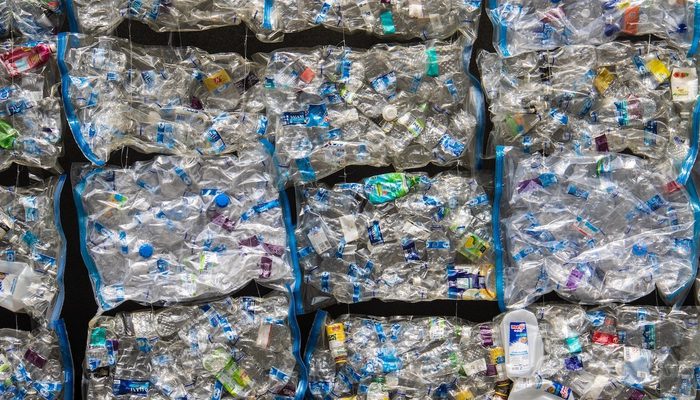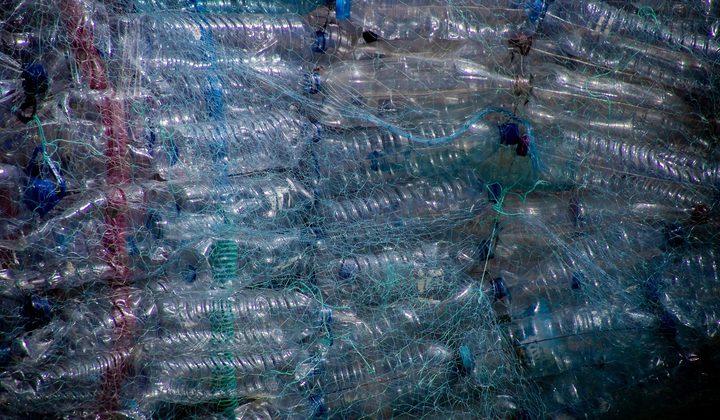On 28 May, the Forum on Trade, Environment, & SDGs (TESS), the Geneva Graduate Institute Global Health Centre, and the Geneva Environment Network convened a roundtable to bring together the international health and environment communities with a diverse group of leading experts.
The event aimed to foster a dialogue on how the international legally binding instrument to end plastic pollution, currently under negotiation, can address human health protection in ways that are environmentally sound while pursuing the highest attainable standard of health in the context of sustainable development priorities.
The roundtable was organized alongside the 77th World Health Assembly, where the impacts of chemicals, waste, and pollution (including plastic pollution) on human health were being discussed just one month following the fourth round of negotiations to develop a global plastics treaty. Ministry of health representatives and members of the ongoing plastics treaty negotiations attended to develop an understanding of the harms posed by plastics to human health, the public health dimensions of the plastics crisis, and the role of the public health community in addressing the plastics crisis as a health crisis in the context of the plastics treaty negotiations.
The Expanding Body of Scientific Evidence on the Plastics Crisis as a Health Crisis
Speaking to more than 180 participants from government, UN bodies, international organizations, academic institutions, and civil society, the Chair of the Intergovernmental Negotiating Committee (INC) to develop a treaty to end plastic pollution, H.E. Luis Vayas Valdivieso, opened the event by reminding participants that “without science, we cannot take decisions necessary for these negotiations.”
As we face exposure to plastics every day, a growing body of scientific research has documented the wide range of harms and risks that the life cycle of plastics presents for human health, including neurotoxic, carcinogenic, and immune- and endocrine-disrupting impacts. During the roundtable, a panel of scientific experts reviewed the evidence of harms posed by the life cycle of plastics, chemicals of concern, and plastic pollution to human health, demonstrating the plastics crisis as a global health crisis and highlighting the inequitable distribution of plastic pollution impacts on vulnerable populations.
While the body of scientific evidence continues to expand, several speakers highlighted the increased attention of the scientific community to address plastics and human health. Furthermore, since the INC was established in 2022, there has been a growing acknowledgement amongst INC member states for the need to protect the environment and human health in the plastics treaty.
Calling on participants to build on this momentum, representatives from government, the World Health Organization, the Basel, Rotterdam and Stockholm Secretariat, and civil society organizations shared their perspectives on how to connect the scientific evidence with opportunities for the public health community to support the plastics treaty process.
Kate Robertson of the World Health Organization and Kei Ohno Woodall of the Basel, Rotterdam and Stockholm Secretariat shared key lessons learned for the public health community to engage in and strengthen the development and implementation of multilateral environmental agreements for the protection of human health, emphasizing the need to align the INC negotiations with existing public health standards and mechanisms.
As Suerie Moon, Director of the Geneva Graduate Institute Global Health Centre reflected, “it is important to mobilize both the scientific community as well as political momentum to support these talks.”
Opportunities to Protect Human Health in the Plastics Treaty Negotiations
The fifth round of negotiations for the plastics treaty will be held in Busan, South Korea, from 25 November to 1 December 2024, and will be supported by two ad hoc intersessional open-ended expert groups. To support health and environment policy communities, this roundtable presented robust evidence of the known impacts of plastics on human health and identified myriad opportunities to reflect the need for the protection of human health in the INC process.
More information about the roundtable, including the full agenda and list of speakers, can be found here.
The Plastics Crisis as a Health Crisis
You can watch the full video of the event.
Global Plastics Treaty Negotiations
This roundtable was part of our initiative
promoting international cooperation on trade to support the global
plastics treaty negotiations.






